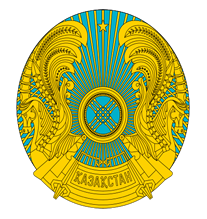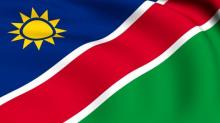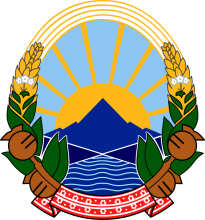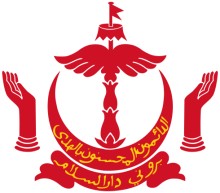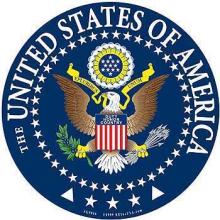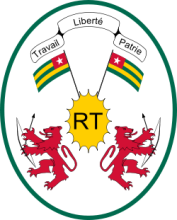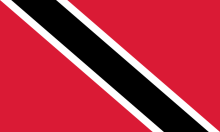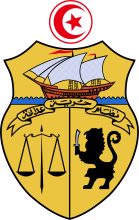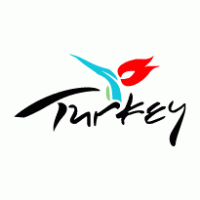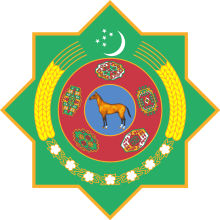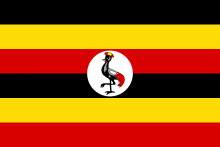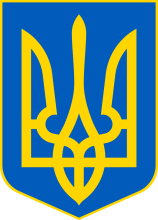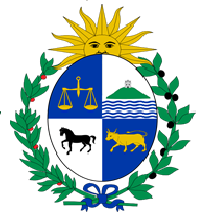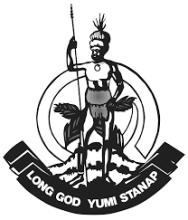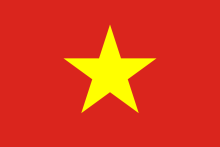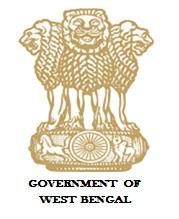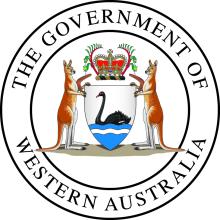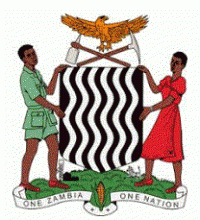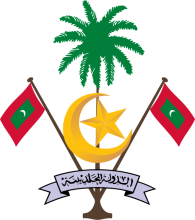A Biblioteca Land Portal inclui recursos de mais de 1.890 provedores de informações nacionais e internacionais. Saiba mais sobre as organizações e instituições que utilizam o Land Portal para partilhar as suas pesquisas, dados e histórias de acesso aberto.
Government of the Republic of Kazakhstan
Ethnic Kazakhs, a mix of Turkic and Mongol nomadic tribes who migrated to the region by the 13th century, were rarely united as a single nation. The area was conquered by Russia in the 18th century, and Kazakhstan became a Soviet Republic in 1936. Soviet policies reduced the number of ethnic Kazakhs in the 1930s and enabled non-ethnic Kazakhs to outnumber natives. During the 1950s and 1960s agricultural "Virgin Lands" program, Soviet citizens were encouraged to help cultivate Kazakhstan's northern pastures. This influx of immigrants (mostly Russians, but also some other deported nationalities) further skewed the ethnic mixture. Non-Muslim ethnic minorities departed Kazakhstan in large numbers from the mid-1990s through the mid-2000s and a national program has repatriated about a million ethnic Kazakhs back to Kazakhstan. These trends have allowed Kazakhs to become the titular majority again. This dramatic demographic shift has also undermined the previous religious diversity and made the country more than 70% Muslim. Kazakhstan's economy is larger than those of all the other Central Asian states largely due to the country's vast natural resources. Current issues include: developing a cohesive national identity, expanding the development of the country's vast energy resources and exporting them to world markets, diversifying the economy, enhancing Kazakhstan's economic competitiveness, and strengthening relations with neighboring states and foreign powers.
Kazakhstan is a presidential republic.
Source: CIA World Factbook
Government of the Republic of Namibia
South Africa occupied the German colony of South-West Africa during World War I and administered it as a mandate until after World War II, when it annexed the territory. In 1966, the Marxist South-West Africa People's Organization (SWAPO) guerrilla group launched a war of independence for the area that became Namibia, but it was not until 1988 that South Africa agreed to end its administration in accordance with a UN peace plan for the entire region. Namibia has been governed by SWAPO since the country won independence in 1990, though the party has dropped much of its Marxist ideology. Prime Minister Hage GEINGOB was elected president in November 2014 in a landslide victory, replacing Hifikepunye POHAMBA who stepped down after serving two terms. SWAPO retained its parliamentary super majority in the November 2014 elections and established a system of gender parity in parliamentary positions.
Namibia is a presidential republic.
Source: CIA World Factbook
Government of the Sultanate of Brunei Darussalam
The Sultanate of Brunei's influence peaked between the 15th and 17th centuries when its control extended over coastal areas of northwest Borneo and the southern Philippines. Brunei subsequently entered a period of decline brought on by internal strife over royal succession, colonial expansion of European powers, and piracy. In 1888, Brunei became a British protectorate; independence was achieved in 1984. The same family has ruled Brunei for over six centuries. Brunei benefits from extensive petroleum and natural gas fields, the source of one of the highest per capita GDPs in the world.
The Sultanate of Brunei is an absolute monarchy or sultanate (locally known as Malay Islamic Monarchy).
Source: CIA World Factbook
Government of the United Kingdom
The United Kingdom has historically played a leading role in developing parliamentary democracy and in advancing literature and science. At its zenith in the 19th century, the British Empire stretched over one-fourth of the earth's surface. The first half of the 20th century saw the UK's strength seriously depleted in two world wars and the Irish Republic's withdrawal from the union. The second half witnessed the dismantling of the Empire and the UK rebuilding itself into a modern and prosperous European nation. As one of five permanent members of the UN Security Council and a founding member of NATO and the Commonwealth, the UK pursues a global approach to foreign policy. The Scottish Parliament, the National Assembly for Wales, and the Northern Ireland Assembly were established in 1999. The latter was suspended until May 2007 due to wrangling over the peace process, but devolution was fully completed in March 2010.
The UK was an active member of the EU from 1973 to 2016, although it chose to remain outside the Economic and Monetary Union. However, frustrated by a remote bureaucracy in Brussels and massive migration into the country, UK citizens on 23 June 2016 narrowly voted to leave the EU. The so-called “Brexit” will take years to carry out but could be the signal for referenda in other EU countries where skepticism of EU membership benefits is strong.
Government of the United States of America
Britain's American colonies broke with the mother country in 1776 and were recognized as the new nation of the United States of America following the Treaty of Paris in 1783. During the 19th and 20th centuries, 37 new states were added to the original 13 as the nation expanded across the North American continent and acquired a number of overseas possessions. The two most traumatic experiences in the nation's history were the Civil War (1861-65), in which a northern Union of states defeated a secessionist Confederacy of 11 southern slave states, and the Great Depression of the 1930s, an economic downturn during which about a quarter of the labor force lost its jobs. Buoyed by victories in World Wars I and II and the end of the Cold War in 1991, the US remains the world's most powerful nation state. Since the end of World War II, the economy has achieved relatively steady growth, low unemployment and inflation, and rapid advances in technology.
The United States is a constitutional federal republic.
Source: CIA World Factbook
Government of Timor-Leste
This is the profile for the Government of Timor-Leste
Government of Togo
French Togoland became Togo in 1960. Gen. Gnassingbe EYADEMA, installed as military ruler in 1967, ruled Togo with a heavy hand for almost four decades. Despite the facade of multi-party elections instituted in the early 1990s, the government was largely dominated by President EYADEMA, whose Rally of the Togolese People (RPT) party has been in power almost continually since 1967 and its successor, the Union for the Republic, maintains a majority of seats in today's legislature. Upon EYADEMA's death in February 2005, the military installed the president's son, Faure GNASSINGBE, and then engineered his formal election two months later. Democratic gains since then allowed Togo to hold its first relatively free and fair legislative elections in October 2007. After years of political unrest and condemnation from international organizations for human rights abuses, Togo is finally being re-welcomed into the international community.
Togo is presidential republic.
Source: CIA World Factbook
Government of Tonga
This is the profile for the Government of Tonga
Government of Trinidad and Tobago
First colonized by the Spanish, the islands came under British control in the early 19th century. The islands' sugar industry was hurt by the emancipation of the slaves in 1834. Manpower was replaced with the importation of contract laborers from India between 1845 and 1917, which boosted sugar production as well as the cocoa industry. The discovery of oil on Trinidad in 1910 added another important export. Independence was attained in 1962. The country is one of the most prosperous in the Caribbean thanks largely to petroleum and natural gas production and processing. Tourism, mostly in Tobago, is targeted for expansion and is growing. The government is coping with a rise in violent crime.
Trinidad and Tobago is a parliamentary republic.
Source: CIA World Factbook
Government of Tunisia
Rivalry between French and Italian interests in Tunisia culminated in a French invasion in 1881 and the creation of a protectorate. Agitation for independence in the decades following World War I was finally successful in convincing the French to recognize Tunisia as an independent state in 1956. The country's first president, Habib BOURGUIBA, established a strict one-party state. He dominated the country for 31 years, repressing Islamic fundamentalism and establishing rights for women unmatched by any other Arab nation. In November 1987, BOURGUIBA was removed from office and replaced by Zine el Abidine BEN ALI in a bloodless coup. Street protests that began in Tunis in December 2010 over high unemployment, corruption, widespread poverty, and high food prices escalated in January 2011, culminating in rioting that led to hundreds of deaths. On 14 January 2011, the same day BEN ALI dismissed the government, he fled the country, and by late January 2011, a "national unity government" was formed. Elections for the new Constituent Assembly were held in late October 2011, and in December, it elected human rights activist Moncef MARZOUKI as interim president. The Assembly began drafting a new constitution in February 2012 and, after several iterations and a months-long political crisis that stalled the transition, ratified the document in January 2014. Parliamentary and presidential elections for a permanent government were held at the end of 2014. Beji CAID ESSEBSI was elected as the first president under the country's new constitution. In 2016, the new unity government continued to seek to balance political cohesion with economic and social pressures.
Tunisia is a parliamentary republic.
Source: CIA World Factbook
Government of Turkey
Modern Turkey was founded in 1923 from the remnants of the defeated Ottoman Empire by national hero Mustafa KEMAL, who was later honored with the title Ataturk or "Father of the Turks." Under his leadership, the country adopted radical social, legal, and political reforms. After a period of one-party rule, an experiment with multi-party politics led to the 1950 election victory of the opposition Democrat Party and the peaceful transfer of power. Since then, Turkish political parties have multiplied, but democracy has been fractured by periods of instability and military coups (1960, 1971, 1980), which in each case eventually resulted in a return of formal political power to civilians. In 1997, the military again helped engineer the ouster - popularly dubbed a "post-modern coup" - of the then Islamic-oriented government. A coup attempt was made in July 2016 by a faction of the Turkish Armed Forces.
Turkey intervened militarily on Cyprus in 1974 to prevent a Greek takeover of the island and has since acted as patron state to the "Turkish Republic of Northern Cyprus," which only Turkey recognizes. A separatist insurgency begun in 1984 by the Kurdistan Workers' Party (PKK) has long dominated the Turkish military's attention and claimed more than 40,000 lives. In 2013, the PKK and the Turkish Government agreed to a cease-fire, but fighting resumed in 2015. Turkey joined the UN in 1945 and in 1952 it became a member of NATO. In 1963, Turkey became an associate member of the European Community; it began accession membership talks with the EU in 2005. Over the past decade, economic reforms have contributed to a growing economy, although economic growth slowed in recent years.
From 2015 and continuing in 2016, Turkey witnessed an uptick in terrorist violence. The attacks have included bombings in Ankara, Istanbul, and throughout the predominantly Kurdish southeastern region of Turkey. On 15 July 2016, elements of the Turkish Armed forces attempted a coup at key government and infrastructure locations in Ankara and Istanbul. An estimated 300 people were killed and over 2,000 injured when Turkish citizens took to the streets en masse to confront the coup forces. In response, Turkish Government authorities arrested and/or dismissed thousands of military personnel, journalists, and civil servants, including judges and educators, over their alleged connection with the attempted coup. The government accused followers of an Islamic transnational religious and social movement for allegedly instigating the failed coup and designates the followers as terrorists. Following the failed coup, the Turkish Government instituted a three-month State of Emergency in July 2016 that was extended in October 2016. The Turkish Government is considering changing Turkey to an executive presidency.
Turkey is a parliamentary republic.
Source: CIA World Factbook
Government of Turkmenistan
Present-day Turkmenistan covers territory that has been at the crossroads of civilizations for centuries. The area was ruled in antiquity by various Persian empires, and was conquered by Alexander the Great, Muslim armies, the Mongols, Turkic warriors, and eventually the Russians. In medieval times, Merv (located in present-day Mary province) was one of the great cities of the Islamic world and an important stop on the Silk Road. Annexed by Russia in the late 1800s, Turkmenistan later figured prominently in the anti-Bolshevik movement in Central Asia. In 1924, Turkmenistan became a Soviet republic; it achieved independence upon the dissolution of the USSR in 1991. Extensive hydrocarbon/natural gas reserves, which have yet to be fully exploited, have begun to transform the country. The Government of Turkmenistan is moving to expand its extraction and delivery projects and has attempted to diversify its gas export routes beyond Russia's pipeline network. In 2010, new gas export pipelines that carry Turkmen gas to China and to northern Iran began operating, effectively ending the Russian monopoly on Turkmen gas exports. Subsequently, decreased Russian purchases, as well as limited purchases by Iran, have made China the dominant buyer of Turkmen gas. President for Life Saparmurat NYYAZOW died in December 2006, and Turkmenistan held its first multi-candidate presidential election in February 2007. Gurbanguly BERDIMUHAMEDOW, a deputy cabinet chairman under NYYAZOW, emerged as the country's new president; he was reelected in February 2012 with 97% of the vote, in an election widely regarded as undemocratic.
Turkmenistan is a presidential republic (highly authoritarian).
Source: CIA World Factbook
Government of Turks and Caicos Islands
This is the profile for the Government of Turks and Caicos Islands
Government of Tuvalu
This is the profile for the Government of Tuvalu
Government of Uganda
This is the profile for all Governmental Institutions in Republic of Uganda.
Government of Ukraine
Ukraine was the center of the first eastern Slavic state, Kyivan Rus, which during the 10th and 11th centuries was the largest and most powerful state in Europe. Weakened by internecine quarrels and Mongol invasions, Kyivan Rus was incorporated into the Grand Duchy of Lithuania and eventually into the Polish-Lithuanian Commonwealth. The cultural and religious legacy of Kyivan Rus laid the foundation for Ukrainian nationalism through subsequent centuries. A new Ukrainian state, the Cossack Hetmanate, was established during the mid-17th century after an uprising against the Poles. Despite continuous Muscovite pressure, the Hetmanate managed to remain autonomous for well over 100 years. During the latter part of the 18th century, most Ukrainian ethnographic territory was absorbed by the Russian Empire. Following the collapse of czarist Russia in 1917, Ukraine achieved a short-lived period of independence (1917-20), but was reconquered and endured a brutal Soviet rule that engineered two forced famines (1921-22 and 1932-33) in which over 8 million died. In World War II, German and Soviet armies were responsible for 7 to 8 million more deaths. Although Ukraine achieved final independence in 1991 with the dissolution of the USSR, democracy and prosperity remained elusive as the legacy of state control and endemic corruption stalled efforts at economic reform, privatization, and civil liberties.
A peaceful mass protest referred to as the "Orange Revolution" in the closing months of 2004 forced the authorities to overturn a rigged presidential election and to allow a new internationally monitored vote that swept into power a reformist slate under Viktor YUSHCHENKO. Subsequent internal squabbles in the YUSHCHENKO camp allowed his rival Viktor YANUKOVYCH to stage a comeback in parliamentary (Rada) elections, become prime minister in August 2006, and be elected president in February 2010. In October 2012, Ukraine held Rada elections, widely criticized by Western observers as flawed due to use of government resources to favor ruling party candidates, interference with media access, and harassment of opposition candidates. President YANUKOVYCH's backtracking on a trade and cooperation agreement with the EU in November 2013 - in favor of closer economic ties with Russia - and subsequent use of force against civil society activists in favor of the agreement led to a three-month protest occupation of Kyiv's central square. The government's use of violence to break up the protest camp in February 2014 led to all out pitched battles, scores of deaths, international condemnation, and the president's abrupt departure to Russia. New elections in the spring allowed pro-West president Petro POROSHENKO to assume office on 7 June 2014.
Shortly after YANUKOVYCH's departure in late February 2014, Russian President PUTIN ordered the invasion of Ukraine's Crimean Peninsula claiming the action was to protect ethnic Russians living there. Two weeks later, a "referendum" was held regarding the integration of Crimea into the Russian Federation. The "referendum" was condemned as illegitimate by the Ukrainian Government, the EU, the US, and the UN General Assembly (UNGA). Although Russia illegally annexed Crimea after the "referendum," the Ukrainian Government, backed by UNGA resolution 68/262, asserts that Crimea remains part of Ukraine and fully under Ukrainian sovereignty. Russia also continues to supply separatists in two of Ukraine's eastern provinces with manpower, funding, and materiel resulting in an armed conflict with the Ukrainian Government. Representatives from Ukraine, Russia, and the unrecognized separatist republics signed a ceasefire agreement in September 2014. However, this ceasefire failed to stop the fighting. In a renewed attempt to alleviate ongoing clashes, leaders of Ukraine, Russia, France, and Germany negotiated a follow-on peace deal in February 2015 known as the Minsk Agreements. Representatives from Ukraine, Russia, and the Organization for Security and Cooperation in Europe also meet regularly to facilitate implementation of the peace deal. Scattered fighting between Ukrainian and Russian-backed separatist forces is still ongoing in eastern Ukraine.
Ukraine is a semi-presidential republic.
Source: CIA World Factbook
Government of United Arab Emirates
This is the profile for the Government of United Arab Emirates
Government of Uruguay
Montevideo, founded by the Spanish in 1726 as a military stronghold, soon took advantage of its natural harbor to become an important commercial center. Claimed by Argentina but annexed by Brazil in 1821, Uruguay declared its independence four years later and secured its freedom in 1828 after a three-year struggle. The administrations of President Jose BATLLE in the early 20th century launched widespread political, social, and economic reforms that established a statist tradition. A violent Marxist urban guerrilla movement named the Tupamaros, launched in the late 1960s, led Uruguay's president to cede control of the government to the military in 1973. By yearend, the rebels had been crushed, but the military continued to expand its hold over the government. Civilian rule was not restored until 1985. In 2004, the left-of-center Frente Amplio Coalition won national elections that effectively ended 170 years of political control previously held by the Colorado and Blanco parties. Uruguay's political and labor conditions are among the freest on the continent.
Uruguay is a presidential republic.
Source: CIA World Factbook
Government of Uzbekistan
This is the profile for the Government of Uzbekistan
Government of Vanuatu
Multiple waves of colonizers, each speaking a distinct language, migrated to the New Hebrides in the millennia preceding European exploration in the 18th century. This settlement pattern accounts for the complex linguistic diversity found on the archipelago to this day. The British and French, who settled the New Hebrides in the 19th century, agreed in 1906 to an Anglo-French Condominium, which administered the islands until independence in 1980, when the new name of Vanuatu was adopted.
Vanuatu is a parliamentary republic.
Source: CIA World Factbook
Government of Vietnam
This is the profile for all Governmental Institutions in Socialist Republic of Vietnam.
Government of West Bengal
The Government of West Bengal also known as the State Government of West Bengal, or locally as State Government, is the supreme governing authority of the Indian state of West Bengal and its 20 districts. It consists of an executive, led by the Governor of West Bengal, a judiciary and a legislative.
Like other states in India, the head of state of West Bengal is the Governor, appointed by the President of India on the advice of the Central government. His or her post is largely ceremonial. The Chief Minister is the head of government and is vested with most of the executive powers. Kolkata is the capital of West Bengal, and houses the Vidhan Sabha (Legislative Assembly) and the secretariat. The Calcutta High Court is located in Kolkata, which has jurisdiction over the whole of West Bengal and the Andaman and Nicobar Islands.
Source: Wikipedia
Government of Yemen
This is the profile for the Government of Yemen
Government of Zambia
Vision:
"To be a model legislature for democracy and good governance"
Mission:
“Committed to effectively and efficiently carrying out its legislative, oversight, representative and budgetary functions”.
Core Values:
Accessibility – The MPs should enhance their interaction with the public both within and outside the Parliament precincts.
Effectiveness – MPs should perform their duties diligently.
Efficiency – MPs should discharge their duties in a timely and cost-effective manner.
Commitment – MPs should be dedicated to their duties.
Accountability – MPs should be answerable to their constituents on how they execute their duties.
Responsive – MPs should respond quickly to issues brought to their attention by their
constituents.
Government of Zimbabwe
The UK annexed Southern Rhodesia from the former British South Africa Company in 1923. A 1961 constitution was formulated that favored whites in power. In 1965 the government unilaterally declared its independence, but the UK did not recognize the act and demanded more complete voting rights for the black African majority in the country (then called Rhodesia). UN sanctions and a guerrilla uprising finally led to free elections in 1979 and independence (as Zimbabwe) in 1980. Robert MUGABE, the nation's first prime minister, has been the country's only ruler (as president since 1987) and has dominated the country's political system since independence. His chaotic land redistribution campaign, which began in 1997 and intensified after 2000, caused an exodus of white farmers, crippled the economy, and ushered in widespread shortages of basic commodities. Ignoring international condemnation, MUGABE rigged the 2002 presidential election to ensure his reelection.
In April 2005, the capital city of Harare embarked on Operation Restore Order, ostensibly an urban rationalization program, which resulted in the destruction of the homes or businesses of 700,000 mostly poor supporters of the opposition. MUGABE in June 2007 instituted price controls on all basic commodities causing panic buying and leaving store shelves empty for months. General elections held in March 2008 contained irregularities but still amounted to a censure of the ZANU-PF-led government with the opposition winning a majority of seats in parliament. Movement for Democratic Change - Tsvangirai opposition leader Morgan TSVANGIRAI won the most votes in the presidential poll, but not enough to win outright. In the lead up to a run-off election in June 2008, considerable violence against opposition party members led to the withdrawal of TSVANGIRAI from the ballot. Extensive evidence of violence and intimidation resulted in international condemnation of the process. Difficult negotiations over a power-sharing "government of national unity," in which MUGABE remained president and TSVANGIRAI became prime minister, were finally settled in February 2009, although the leaders failed to agree upon many key outstanding governmental issues. MUGABE was reelected president in June 2013 in balloting that was severely flawed and internationally condemned. As a prerequisite to holding the election, Zimbabwe enacted a new constitution by referendum, although many provisions in the new constitution have yet to be codified in law.
Zimbabwe is semi-presidential republic.
Source: CIA World Factbook
Government of Maldives
This is the profile for the Government of Maldives

